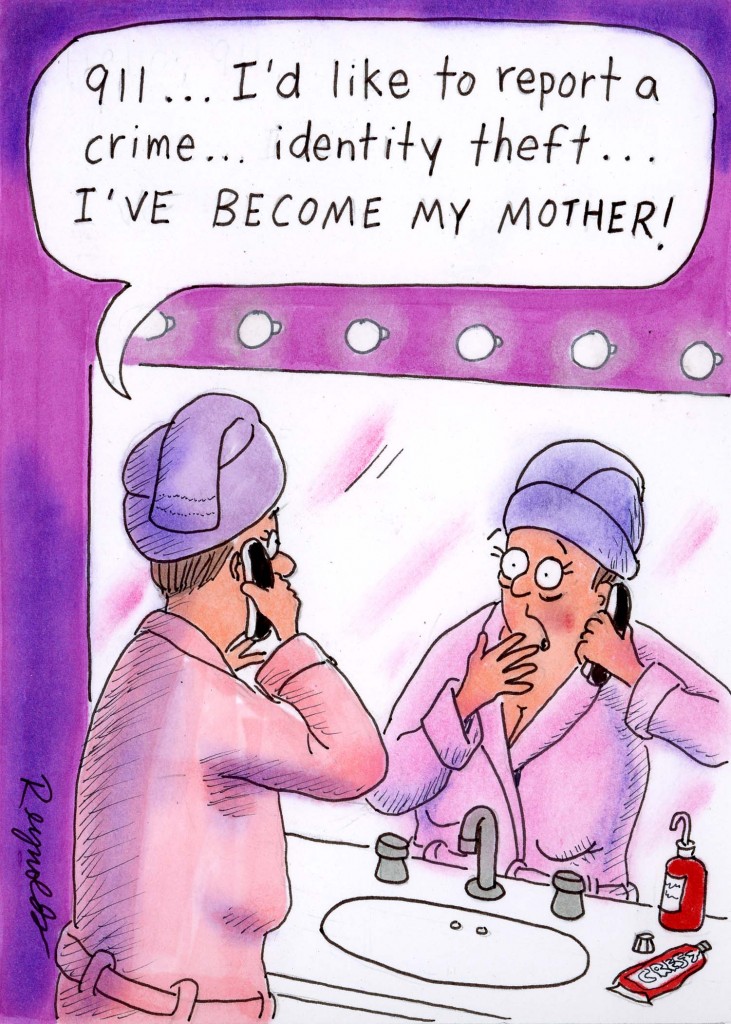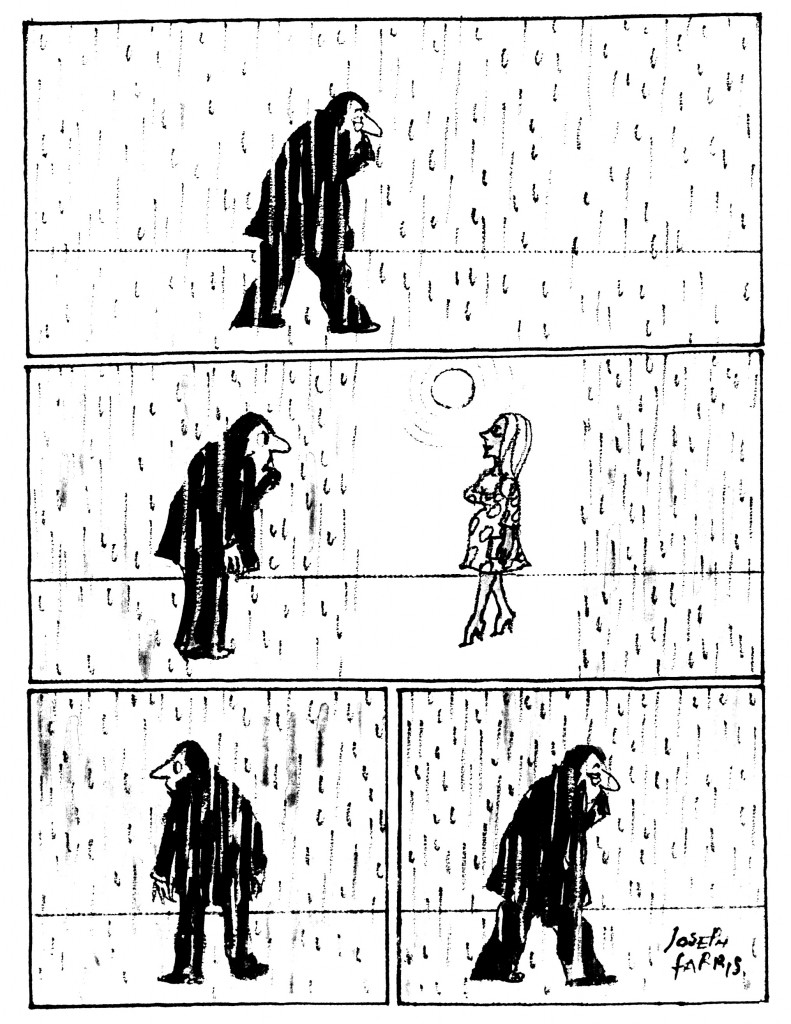Wednesday Bubble: Newsflash – sleep and skin aging
Whoa! I have some news to share this week and it’s not good for those of us who struggle nightly with their sleep. Poor sleep has been linked to premature skin aging and an overall reduced skin health.
In what is being billed as a ‘first of its kind,’ University Hospitals Case Medical Center (Cleveland, OH), explain that their study (which was presented this past April at the International Dermatology Meeting in Edinburgh) evaluated 60 women between the ages of 30 and 49 (who, by the way, were premenopausal) who had been surveyed about their sleep quality using a scientific index. About half of the women reported having poor sleep quality and sleeping five hours or less a night.
Additionally, the researchers evaluated participants’ skin aging in terms of physiological factors (e.g. diminished collagen) and external factors (e.g. UV rays, smoking) that might contribute to skin aging, as well as assessing how well the skin was functioning to keep out damaging substances and maintain moisture.
Finally, the women were asked to maintain a sleep log for a week.
The findings are quite startling. Women who were classified as poor sleepers showed significant signs of aging that are associated with intrinsic (physiological) factors, including fine lines, uneven pigmentation, slackening and reduced elasticity. On the other hand, good sleepers appeared to have half of the signs of aging as their colleagues, and they also recovered more efficiently from factors that stress the skin, such as recovery from sunburn and inflammation. And, skin function was about 30% more efficient in good quality sleepers compared to poor sleepers; for example, they had better recovery from moisture loss tests.
The primary take away from these data, which appears in abstract form in the Journal of Investigative Dermatology, is that poor sleep may accelerate skin aging and hinder or weaken the ability of the skin to repair itself. The key to better skin aging? Get more zzzs!
Read More
Over or under? Work, stress and life
July is almost over. And it’s been a whirlwind of work, illness, tragedy and emotions. So much so that my instinct is to find a cabin in the woods and hide out for the month of August. This post from a few years ago seems more relevant than ever.
Results of a global survey (conducted several years ago by the Boston Consulting Group) suggested that women are more overworked, overextended, overstressed and underserved than ever. In fact, time demands are the number one challenge that women face in their lives.
Key findings included:
- Women are responsible for a large percentage of global income, owning 40% of all U.S. business and controlling over $12 trillion dollars in consumer spending (globally).
- In the U.S., almost 71% of women in the workforce are mothers, and over half have children under the age of one. Yet, they do most of the work at home as well (88% – grocery shopping; 85% – meal preparation; 84% laundry and cleaning; and 77%, household administration).
- 48% of women say that managing household finances is a major source of stress in their lives, while 81% are concerned about not having enough money for retirement.
- 47% say that time demands represent the “big stress in their lives,” with 45% expressing that they don’t have enough time for themselves.
One of the most disturbing finding deals with women’s expectations of themselves. In fact 44% of those polled said that they rarely or never feel powerful. Hmmm, why is this? Why is it that we feel powerless when we control such a significant portion of the global economy and virtually run our world, both inside and outside the home? And where is the true source of a woman’s power?
Survey results suggest that the source of happiness in women’s lives mostly relates to love, health, honesty and emotional well-being. From this, one might surmise that the source of women’s power lies within their connections, candor and honesty, as well as the opportunity to pursue these things freely. Indeed, when asked what they wanted most, respondents said:
- More love and connections, both intimate and with family, friends, colleagues and neighbors.
- Freedom to pursue the path which will allow them to become fulfilled, happy and satisfied.
- More balance in their lives.
- Enough money to remove financial pressure.
 We live in a world where time is a commodity and where the individual is always being pulled in a zillion directions. Self-image, especially as we age, can be tough, especially when societal messages abound that we are no longer “as beautiful as…” In fact, in this survey, at least a quarter of women said that they rarely or never felt beautiful.
We live in a world where time is a commodity and where the individual is always being pulled in a zillion directions. Self-image, especially as we age, can be tough, especially when societal messages abound that we are no longer “as beautiful as…” In fact, in this survey, at least a quarter of women said that they rarely or never felt beautiful.
What gives? We are powerful, we are in control and regardless of age or shape, we, as women, have an inner beauty that when realized, reflects outward and resonates endlessly.
Life is stressful and it appears that as women, we are shouldering a burden of extreme proportions. Not only should we be asking what we are doing to create this paradigm but more importantly, what can we do to change it.
What do you think?
Read MoreFriday Folly: If it’s not one thing…
You’ve all heard the adage, if it’s not one thing, it’s your mother, right?
Despite the cartoon, this week I am paying tribute to a beautiful mother who lost her gorgeous son last weekend. Through this tragedy, may we find laughter, love, peace and a whole lot of WOW. And mothers? I’ve turned into mine a bit as the years have passed. Even the not so good bits can be wonderful if you think about what mothers are and what they do.
Have a good Friday. And if your mother is still with you, reach out and tell her thank you.
Read More
Wednesday Bubble: How Dry Am I? How Dry Are You?
Puzzle me this:
What do vaginal dryness and technology have in common?
Evidently, the folks at RuJuVey want your help in finding out. But first, let’s talk about the issue of vaginal dryness. Vaginal dryness is a characteristic of vaginal atrophy — a thinning of the vaginal tissue that results as estrogen declines. It affects as many as half of all women as they go through menopause and although vaginal atrophy can occur during anytime in a woman’s life, it’s prevalence does increase with aging. And so do the accompanying symptoms of dryness, pain during intercourse, irritation, post-intercourse bleeding and of course, a decline in sexual desire and functioning as a result. While topical estrogen is certainly an option and prescribed by many clinicians for this problem, it’s always nice to have non-prescription alternatives that work just as well.
That’s where RuJuVey theoretically enters the picture.
Admittedly, I don’t know very much about RuJuVey; from what I understand, the company is working on a device that uses sonic technology to deliver a non-hormone emollient. And, while the product is in development, they are seeking your assistance, via a short, online survey, to try to learn more about vaginal dryness and the percentage of women who suffer from it as a result of aging. In addition to participating in the survey, you may also be considered for participation in a test group.
Mind you, I’m curious about the device, although I’m not quite sure that I can get my ‘legs’ around (!) what I assume will be a tampon-like device that requires insertion to help turn on the juices again. Then again, that’s simply an assumption.
If you are interested, I’d encourage you to click on the link above and take the survey. I did and it’s a painless way to participate in innovation. And when it comes to menopause, I’m all about innovating.
Who knows? It might be the sunny side of Menopause Lane!
[Disclosure: While I was approached by ReJuVey to share their survey, they did not contribute ideas for this post nor was I paid by the company.]
Read MoreNewsflash: So, estrogen is safe?
 If you’ve been following this blog for any period of time, you know that I’ve consistently shared data that demonstrate the hormones, particularly combination hormone replacement therapy (HRT) can be dangerous, depending on age, time since menopause and other concomitant health issues. Yet, the medical community continues to beat the dead horse of trying to prove the hormone replacement in any form has a role in women’s health. And because I have promised to share the facts, regardless of whether or not I have questions about the motivation underlying their derivation, I am writing this post.
If you’ve been following this blog for any period of time, you know that I’ve consistently shared data that demonstrate the hormones, particularly combination hormone replacement therapy (HRT) can be dangerous, depending on age, time since menopause and other concomitant health issues. Yet, the medical community continues to beat the dead horse of trying to prove the hormone replacement in any form has a role in women’s health. And because I have promised to share the facts, regardless of whether or not I have questions about the motivation underlying their derivation, I am writing this post.
According to research appearing in the July 28 online issue of the American Journal of Public Health, estrogen actually prevents deaths among women who have had hysterectomies. By the way, that’s estrogen ALONE, not estrogen plus progestin, and that is a critical distinction.
Onto the findings. When researchers took another gander at the Women’s Health Initiative data, they sought to determine how the rate of excess mortality among women who took placebo versus those who took estrogen over the course of the landmark study actually translated into premature deaths that might have been preventable. And what they found is pretty shocking:
- The researchers looked at deaths in women who had undergone hysterectomy and still had an ovary intact compared with those who did not have any ovaries (note that sightly more than half — 54% — of women have both ovaries removed at the time of hysterectomy)
- They also examined the use of oral estrogen among the 50 to 59 year old set between the years 2001 and 2004, noting a decline by as much as 60% (largely the result of the the findings of the Women’s Health Initiative) and a relative decline by as much as 71% by the year 2009.
- In composite, they were able to calculate that between 2002 and 2011, a least 18,601 excess deaths occurred and as many as 91,61o excess deaths occurred among women who had had hysterectomies and chose not to use estrogen. This translates to an actual toll attributed to the decision of 40,292 to 48,835 deaths.
The researchers say that estrogen therapy alone reduces mortality mainly by reducing the number of heart disease-related deaths; notably early surgical menopause and complete removal of the ovaries boost the risk for coronary heart disease. Estrogen prevents the development of atherosclerosis and helps maintain normal blood flow.
It’s important to remember that these findings do not apply to women younger than age 50 or older than age 59. Moreover, they also fail to consider other reasons for the increase in heart disease among women as their estrogen declines, such as a surge in cholesterol. And, despite the improved odds against dying from heart disease, these data also ignore other health issues associated with estrogen alone, such as incontinence, hip fracture and of course, breast cancer among certain subsets of women. Hence, again, I am forced to ask the question why researchers continue to beat this horse to death when the deaths prevented may carry the cost of other issues?
I don’t believe that this is anything that will be resolved any time soon. And, as I have written previously we’re drowning in politics, medicine and industry. And it’s difficult to discern truth from fiction, data from data, risk from benefit. Ongoing analyses will eventually reveal what’s what. Meanwhile, read the library of HRT posts on Flashfree. Talk to your physician. Avoid hasty decisions. And consider alternatives. If the medical community can’t agree, perhaps it’s time to put down the gauntlet and wait out the firestorm.
The choice is yours’. Which side are you willing to err on?
Read More







